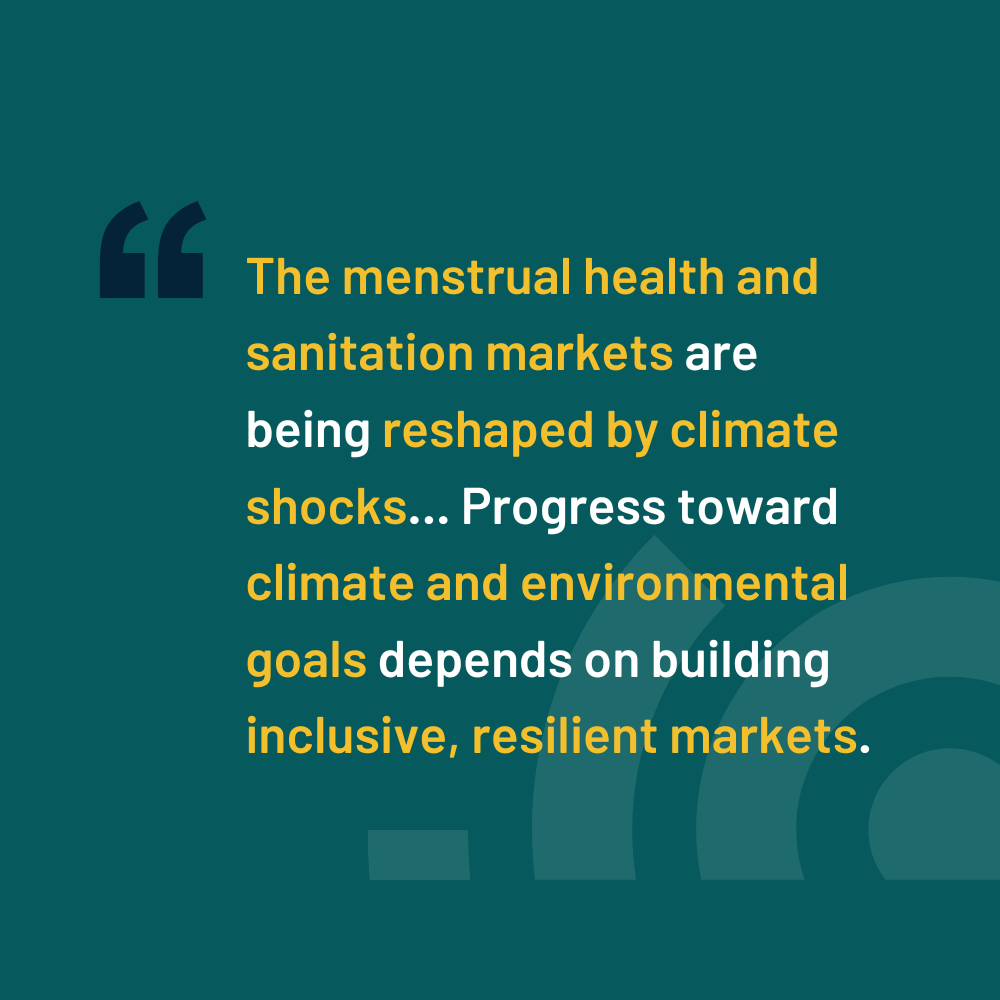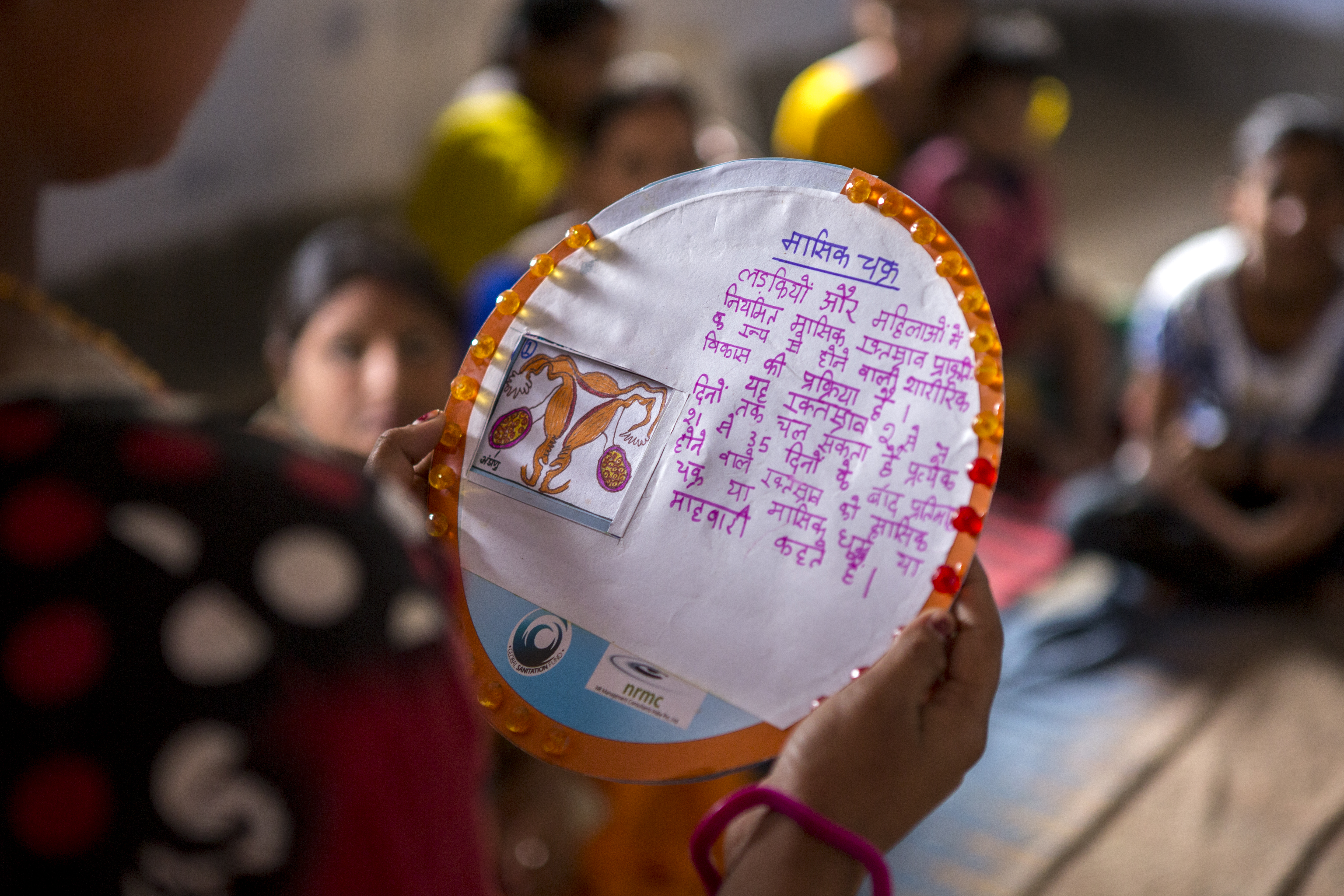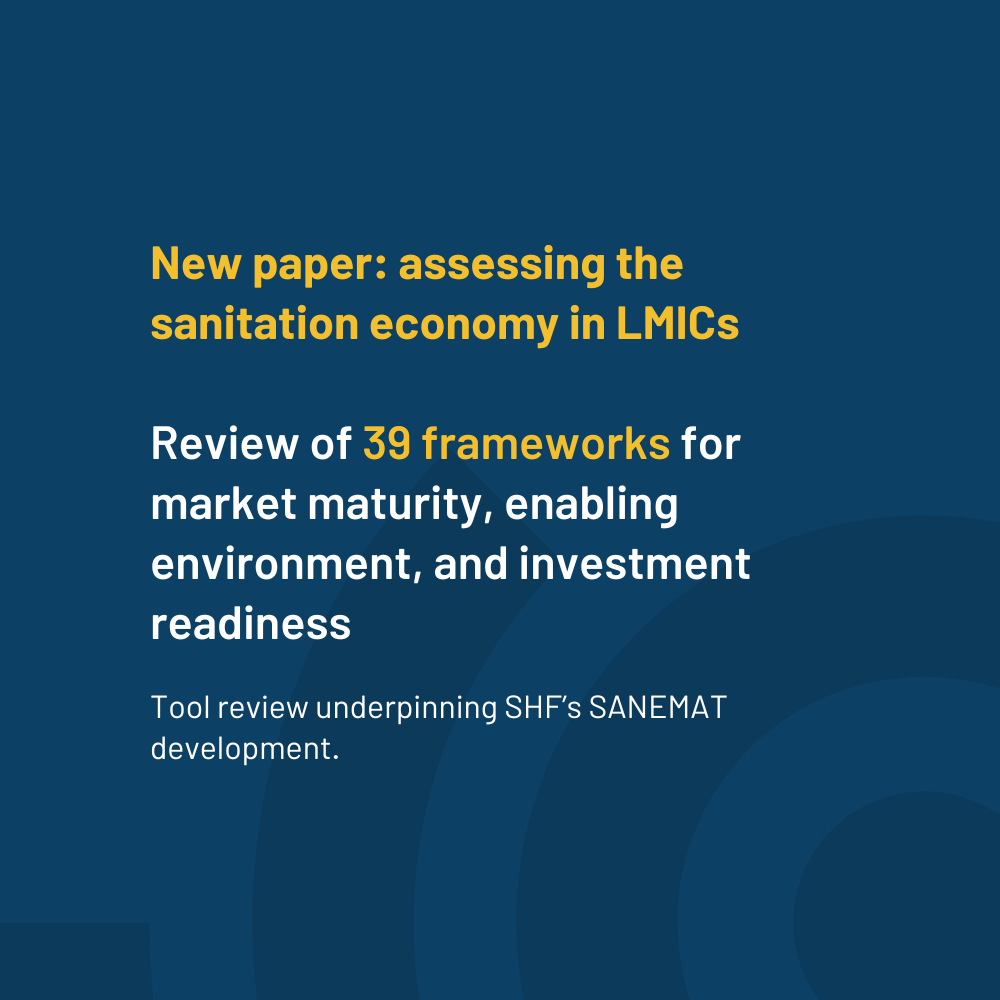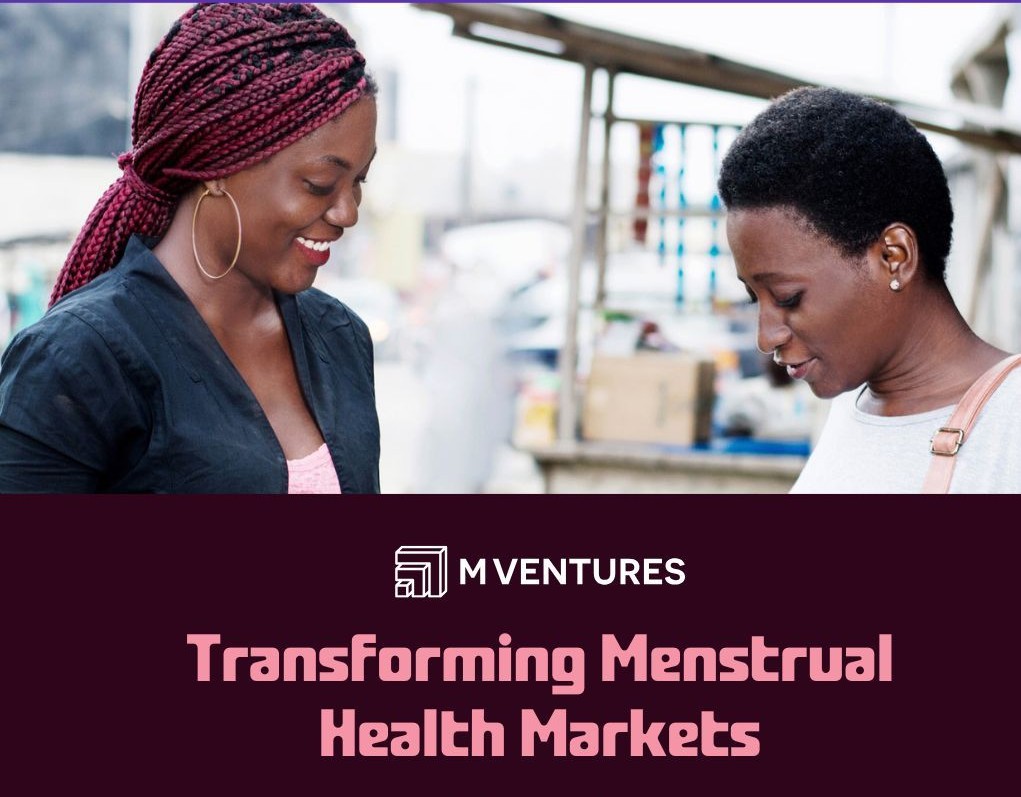
SHF commissions study to quantify potential and impact of menstrual health interventions

PSI-Europe will work with the Sanitation and Hygiene Fund (SHF) to generate cost/benefit estimates and estimates of impact for different types of menstrual health and hygiene (MHH) interventions
Today, there is growing awareness on the links between menstrual health and hygiene, and gender equality, education, economic empowerment, health and sustainability. Some countries and organizations are moving to strengthen MHH policy, infrastructure and access but universally, progress remains woefully inadequate. On any given day, globally around 300 million women and girls menstruate but often do not have basic facilities, products or privacy to manage their periods safely. The world needs to accelerate MHH interventions to address these persistent and glaring gaps and to do so, it is imperative that we learn from the range of interventions already in place to improve and strengthen their delivery.
Even though MHH has emerged as a field of research, the available evidence on MHH intervention impact is still limited. The benefits from different types of MHH interventions relative to their costs are not well understood. Based on preliminary analysis by Elke de Buhr, Head of Monitoring and Evaluation for the SHF, “market-based MHH interventions in particular have not been systematically studied, and quantitative data on the long-term health, education, economic and environmental impacts of investments in MHH are equally lacking. We need to better understand what can be achieved by increasing investments in MHH.”
To address these evidence gaps and provide critical data needed for investments and intervention planning, SHF has commissioned Population Services International (PSI-Europe), a leader in MHH, to work with SHF to undertake evidence building to quantify the potential and impact of selected MHH interventions.
“In the past years, we have seen a welcome shift acknowledging the importance of MHH to national sanitation and hygiene goals, and other related SDGs, but progress has been piecemeal and severely lagging. We need to do better to understand which interventions are needed, where, when and how they can be best set up to work and that is what this study will enable sector experts and decision-makers to do,” said Sue Coates, Deputy Executive Director, SHF and lead on the fund’s MHH work. “By studying MHH interventions across a number of countries in Africa and Asia, including in four countries where SHF is working, we will have access to vital data to help make MHH interventions more effective, in rural and urban contexts, and yield stronger health, education, economic and environmental benefits, for those who menstruate and communities at large.”
As part of the study, PSI-Europe will analyze sanitation, hygiene and MHH data from secondary sources and use these data for intervention impact modeling. The project will also analyze incoming SHF monitoring data and other project data to verify and refine estimates differentiating between rural and urban settings. The research will contribute to (a) a better understanding of the needs, gaps, opportunities and costs associated with different types of MHH interventions, and (b) estimates of the health, education, economic and environmental impacts from improved access to MHH products and services.
“We’re thrilled to partner with SHF on this important endeavor. This study aims to complement recent critical work of other MHH experts and organizations who developed indicators to measure unmet MHH needs and monitor progress in areas of specific MHH interventions. By providing governments and other stakeholders data to understand the impact and costs of such interventions and when and how to best implement them, we hope to help address the menstrual health challenges of people who menstruate and truly achieve gender equality,” said Odette Hekster, Managing Director of PSI-Europe and MHH champion.
Launching formally in August 2022, the study is expected to run for 12 months.



